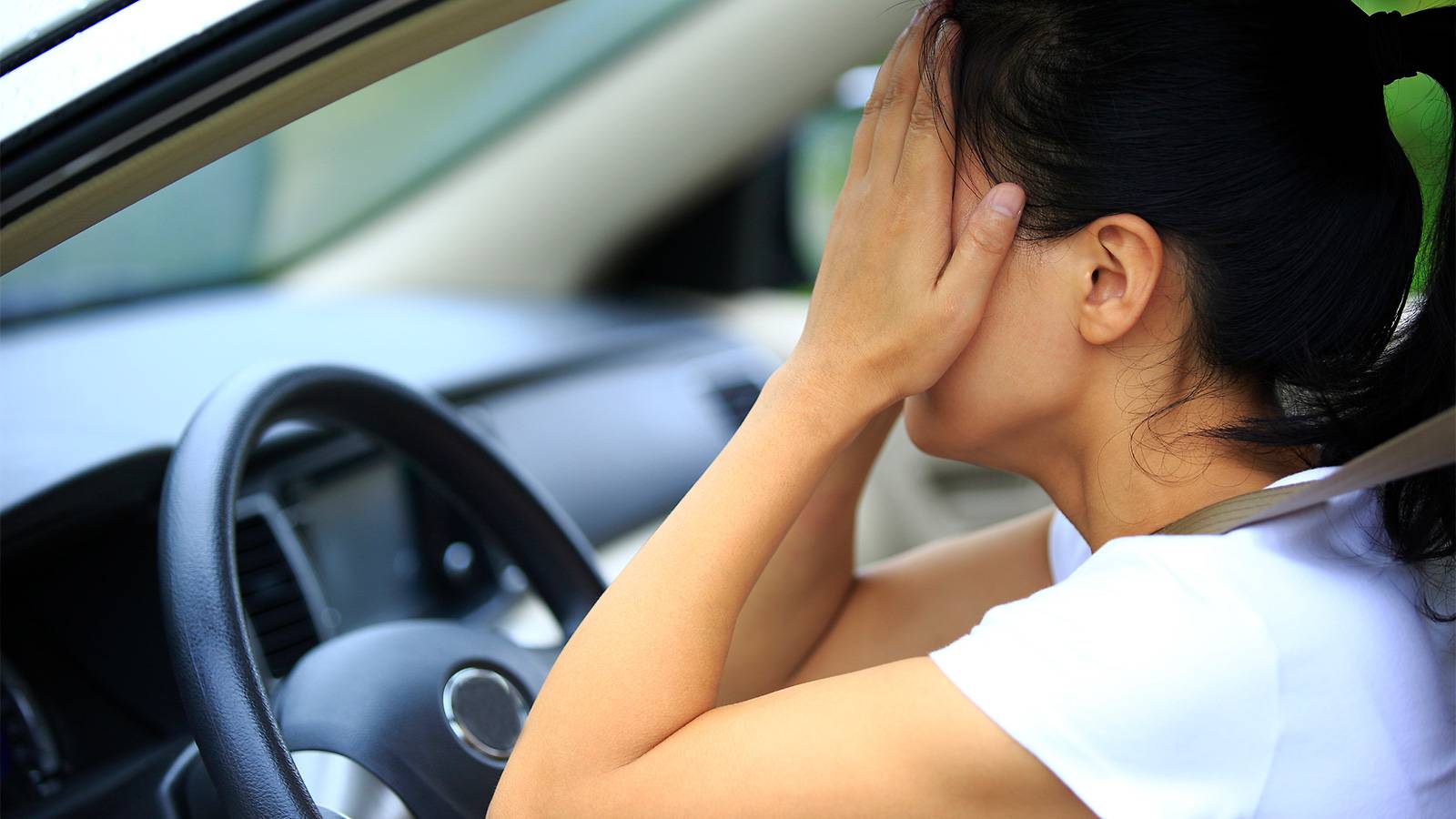Online pressure to be the perfect mum can push vulnerable new mothers closer to the edge.

Everything Malini Pravin Saivi read on social media painted a rosy picture of the pure, unconditional love a mother has for her newborn. So, when she gave birth three years ago to a baby girl, she waited for that feeling ― it did not come.
“I’ve seen mothers posting (on Facebook) an hour after giving birth about how all the pain was worth it, with photos of them looking lovingly at their baby. But I didn’t feel that that the pain was worth it,” said the 33-year-old Singaporean, who is now living in Chennai, India.
What she read online made her feel like a bad mother, but she was too embarrassed to share those feelings with anyone, she said.
“New mothers usually share so much of their joy online and they don’t share the downsides. Everyone wants to post a pretty picture,” she added, noting that she believed she would have been subjected to online abuse if she had shared her emotions about not feeling love for her baby.
The lack of emotional connection with her new daughter, coupled with pain from lacerations from delivery and an oversupply of milk that led to engorgement, resulted in Malini starting to feel extremely low. A death in her family the day she delivered also took a toll on her.
She started to imagine hurting her daughter, and the thoughts became more violent.
However, she did not succumb to them, and things took a turn for the better when she had a routine check-up at the six-week mark at KK Women’s and Children’s Hospital.
She opened up about her feelings, and was referred to a psychologist, who in turn referred her to a psychiatrist who diagnosed her with postnatal depression. With the right medicines, and support from her family, Malini was able to recover.
While social media and online support groups may be a source of help for new mothers, they can often also make mothers insecure about themselves.
Though social media gave Malini an idealistic image of what kind of a mother she should be, she also found comfort in other Facebook groups. Here, she could ask questions and immediately receive a flood of answers from concerned fellow mothers.
Psychologists and counsellors said that while social media and online support groups may be a source of help for new mothers, they can often also make mothers insecure about themselves.
Social media leads to comparison
Counsellor Silvia Wetherell, who specialises in maternal mental health, said that one of the biggest perils of social media for new mothers is comparison. “They are comparing themselves at their worst to a filtered snapshot of a person at their best,” she said.
Wetherell notes that photos of mothers who look like they have it all together can make those who are already struggling feel inadequate, giving them a sense of isolation and that they are the only ones not coping. In reality, these well-adjusted mothers may just be very good at hiding their emotions.
The Internet can also provide other unrealistic comparison points for emotionally vulnerable mums. “Now, they don’t only compare themselves to their peers, but to celebrities, who are in bikinis a week after giving birth, going on dates, making it look like motherhood is not a big deal,” Wetherell points out. “They feel like they are failures, and terrible mothers.”
Wetherell sees around 20 mothers going through postnatal depression or anxiety every week. She notes that the pressure to breastfeed is a “huge” contributing factor. “Research shows breastfeeding is very good for the baby, and there is a lot of pressure to breastfeed. Sometimes, when it doesn’t work despite the mother's best efforts, it can trigger postnatal depression.”
She adds that when there is anxiety and pain surrounding breastfeeding attempts, it could hinder a mother’s attachment to her baby.

One mother, a 30-year-old civil servant who did not want to be named, knows the pitfalls of using social media all too well. The worst thing for her, she said, was the pressure to breastfeed. She was in several groups with others who gave birth at around the same time as her, and she would see photos of the amount of milk they were able to express.
“I didn’t have as much supply, so I would think: ‘Am I an incompetent mother who is not feeding her child enough?‘” she said. These led to feelings of insecurity, and combined with a lack of sleep, leaving her job and her loss of independence, she would cry for hours at a time.
In these support groups, some would also post photos of their text exchanges with their husbands showing how appreciative they were of the new mother breastfeeding. Up alone at night while feeding her baby, she would feel frustrated that her husband would be sound asleep beside her. She also found herself drawn to pictures of attractive mothers on Instagram, loathing herself for being a “blob of fat” months after giving birth.
It was also social media and support sites that led her to create an “idealistic” birth plan which did not go well when it came to the actual delivery. She did not want to take any pain-relief drugs and she wanted delayed cord clamping, which she had read was good for the baby. But these did not happen, and she felt despair at her perceived inability to live up to the ideal birthing and motherhood experience that she had seen online.
“Sometimes, when it [breastfeeding] doesn’t work despite the mother's best efforts, it can trigger postnatal depression.”
Six months after giving birth, she sought counselling help from a nearby family service centre in order to make sense of her constant anger against everyone, and it helped her.
Digital detox
Postnatal depression, if unchecked, can lead to suicide ― as it did in the case of 29-year-old Koh Suan Ping, who jumped to her death from a Bukit Panjang flat with her 2-month-old daughter in her arms.
Five days before, she had searched online for “what to do when there is no way out”. Her husband and colleagues said she was upset she could not produce enough breastmilk to feed her daughter, stressed at having to find a replacement domestic helper, and concerned that her company, where she was a sales manager, was not doing well.
While seeking help, whether online or in person, is encouraged, Care Counselling Centre centre manager Jonathan Siew said that even positive, empowering information may have a negative effect on mothers who are already struggling.
“At the centre, we usually have mothers coming in a year or two after giving birth, finally deciding to seek help. Social media is a new thing mothers grapple with and it has a great impact on mental well-being,” he said.
Wetherell agrees, saying that mothers may have too much information, some of which could be conflicting. “Instead of trying to get to know their baby, they are trying to get information online on the average child,” she notes.
To combat this, Wetherell gets her clients to go through a digital detox. They can only have access to their social media accounts via a computer, instead of on their mobile phones. Her clients found that they felt much better after they did that.
“Social media can help, but mothers should set boundaries. For example, 20 minutes in the morning, 20 minutes in the afternoon, and 20 minutes at night,” suggests Wetherell. “One of the things I teach is to be present and mindful, because social media is distracting."
While the 30-year-old mother that Channel NewsAsia spoke to does not have such boundaries, she recognised that the unrealistic standards social media set for her were not helping her. So, she did a “spring cleaning” of her social contacts on both Facebook and Instagram.
"I deleted toxic friends, and unfollowed the hot mums on Instagram. Even when I see mums flaunting photos online now, I take them with a pinch of salt," she said.
Photos: iStock
A version of this story by Jalelah Abu Baker first appeared on Channel NewsAsia.
Like us on Facebook and check SmartParents regularly for the latest reads!
In case you missed these stories…
6 steps to beating new-dad baby blues
